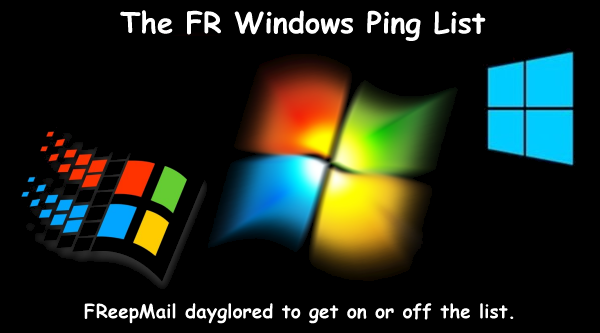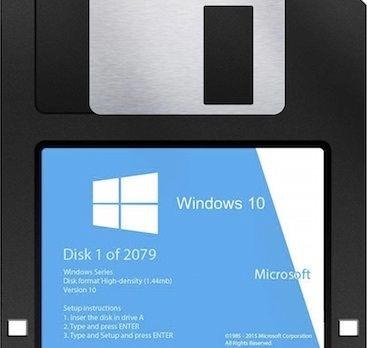 |
 |
|---|
Posted on 01/30/2017 8:03:10 PM PST by dayglored
Windows Cloud: That name has appeared in system files deep within some of the most recent Windows 10 Insider builds. While a few experts guess it could be a new version of Windows, what it actually is remains a mystery.
As far as evidence goes, it’s pretty slim pickings. Two names, “Windows Cloud” and “Windows Cloud N,” appear in a list of Windows versions as early as the recent Windows 10 Insider Build 15002, as originally reported by the Walking Cat Twitter account. (The “N” designation likely refers to a version specifically designed for European countries.)
ZDNet’s Mary Jo Foley, however, unearthed one other key bit of information: Instead of an operating system that lives in the cloud, as the name suggests, “Windows Cloud” is actually an operating system that can only run Microsoft’s own UWP apps, downloaded from the Windows Store. Foley draws the obvious conclusion: Windows Cloud is essentially the second coming of Microsoft’s unpopular Windows RT.
Windows RT was the operating system that powered the original Surface tablet as well as the Surface 2. Users criticized it for its inability to run anything but a limited number of apps directly from the Store. (At the time, Microsoft’s “universal” apps were in their infancy, while the vast majority of Windows applications were coded for the Win32 environment.) Though Windows RT had its fans, most customers quickly turned to the more advanced, Windows 8-powered Surface Pro tablets, and the Surface 2 quietly died in 2015...
(Excerpt) Read more at pcworld.com ...
 |
 |
|---|
It’s a post Windows World now....
What distresses me is the instability of the product definitions. It seems to me they're thrashing, trying to find something that works and sells.
But I'm sure someone here will tell me that I'm just not seeing the Big Picture accurately. Or something...
Sounds to me like another step towards MSFT offering “Windows as a Service.”
dayglored, you’re right, MSFT seems to be thrashing around, looking for the next money maker. Do they even have a business plan?
We use Windows because our business apps are windows based. But we use an OLD version of Office, etc. none of this ‘Cloud-based’ crap.
There is literally nothing I do anymore that requires Microsoft. Linux is a fine OS. OpenOffice/Libre Office and other MS Office alternatives are available and do fine jobs.
eMail clients, email services, calendaring services, cloud hosting services, etc.. are a dime a dozen these days, don't need Microsoft for any of that either. I know enough Linux to last a lifetime, I can damn' sure move my media, calendaring and home automation stuff over to Linux pretty easily and say goodbye to Microsoft in a weekend.
FU Microsoft!
Signed,
a former customer and Senior I.T. Decision Maker in a very large US Bank. By the way, kiss yourselves goodbye there too. Linux has been eating into the Windows Footprint here for years. I'm just gonna mash the accelerator to the floor this year, change some objectives, re-write some goals and make sure my people move your crap out of our data center.
Oh, our enterprise licensing costs? We're going to save upwards of $20mm getting rid of you. I'm gonna be a FREAKING HERO when you're gone.
Their business plan is:
whatever we sell, we sell as a service now rather than a product.
Fortunately, I was able to sell my business and retire before “the cloud” really got started.
Good for you for staying away from it. Too many hackers and bad guys out there to trust the cloud with sensitive business data. Payroll, business plans and forecasting especially.
That’s more their wannabe business plan. It will be interesting to watch business reaction to this as MSFT continues down this road.
One of the reasons I ditched MS products and Win 7 in particular, is because my laptop would see my flatbed scanner on all USB ports but only function on one of them.
Then the security updates that caused Corel to not load.
Linux Mint Cinnamon 18 works much better.
“I have a bad feeling about this!” — Han Solo
When I write linux worked better I meant as an OS, not with Core. I use Gimp and KdenLive now.
> ...After reading today that Microsoft joined the state of Washington in their legal fight against President Trump’s illegal immigration efforts...
Do you have a link on that? I would post that as another thread, or you are welcome to, and ping me for the list.
http://www.theverge.com/2017/1/30/14447166/microsoft-amazon-washington-trump-immigration-ban-lawsuit
;^)
Windows RT? Microsoft hacked the election?
Kicking the rest of the MS crap outta my house this weekend. Bye bye MS!
Good on ya ;^)
Started messing with Red Hat back around 2000... Thought it was too much trouble, at the time.. retried around 2005, and haven’t turned back :)
I called it the Wife Test. It was a simple test really, designed at the typical home user who my wife (soon to be EX WIFE, thank God!) represented.
The test simply stated involved handing her a CD/DVD to see if she could insert the CD, boot the computer and install the OS without any intervention from me.
Linux hit that mark right about the 2004-2006 timeframe if I remember correctly. The very first time she was able to completely install the OS without asking me a single question or looking confused, I knew Linux as an OS was ready.
Other software such as MS Office compatible suites lagged a bit behind installation wise, but that got easier as different distributions (Ubuntu, Mint to name a few) bundled that with the OS and streamlined that part as well.
While I've predominantly made my living off of Microsoft related software development, Java and worked up the the management food chain into Data Center and Global Enterprise DevOps I've kept my hands in the Linux world, including most of the distributions these days.
I'm one of those people who's somewhat surprised that Linux hasn't taken more of the home market, specifically in the BYOPC landscape. Here Microsoft has always had an advantage of strong arming PC makers into including their OS with their hardware. Marketing can be a real bitch sometimes and no one markets as good as Microsoft does. Their revenues prove that.
What I learned yesterday however shocked me: Microsoft PENALIZES hardware makers and Enterprise Customers (such as the global bank I work for) for NOT using products in the Microsoft catalog. That penalty is reflected in the Enterprise Agreement between Microsoft and the business/organization in very specific language.
I'll give you an example: If you're a Microsoft Enterprise customer and have licenses for the Microsoft Office suite, you're paying for Skype. If you don't USE Skype and use another chat client (such as Cisco Jabber) Microsoft makes you pay a "license fee" for Cisco Jabber. That license fee is forced upon the Enterprise Customer during an annual software audit which Microsoft performs and looks to see which LICENSED products an organization is using. If those LICENSED PRODUCTS included in the Enterprise Agreement aren't in use, Microsoft assumes another product is being used and charges a "license fee" or "seat license" for using that product along with the Microsoft OS.
The example I'm making above is happening in the bank I work for right now. I work very closely with our Technology Procurement folks, I heard this exact complaint yesterday during a day long I.T. Strategy meeting that I called and ran. This news wasn't just a surprise to me, it was a surprise to my CTO.
So when I say I'm kicking Microsoft out of my house I have quite a few reasons and examples of exactly why I'm doing it. I refuse to feed that beast anymore.
While I may struggle to get some of my amateur radio software to run in an emulator on Linux, I'll get it there. It'll be "fun" for me to have that challenge for awhile. The satisfaction of knowing why I'm doing it is enough.
Disclaimer: Opinions posted on Free Republic are those of the individual posters and do not necessarily represent the opinion of Free Republic or its management. All materials posted herein are protected by copyright law and the exemption for fair use of copyrighted works.